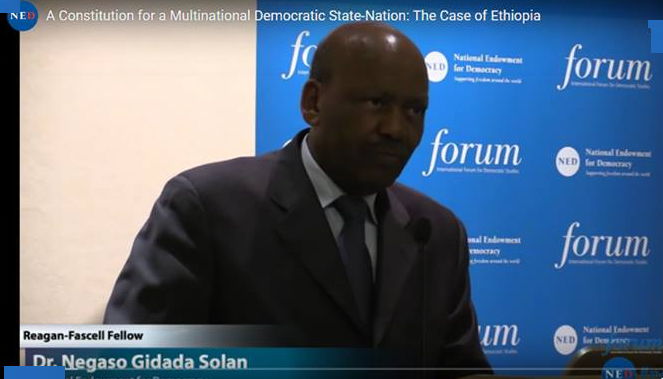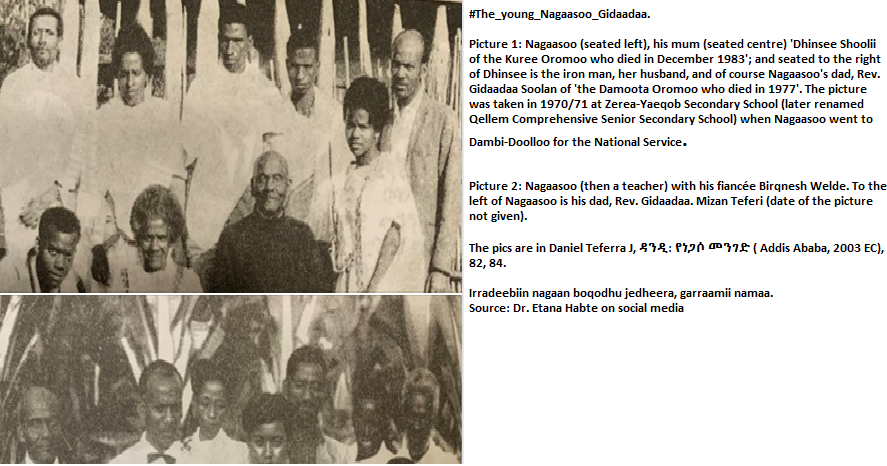Seenaa Gabaabaa Dr. Nagaasoo Gidaadaa Solan (1943-2019). The Short History of Dr. Nagaasoo Gidaadaa Solan, the Former President of Ethiopia April 29, 2019
Posted by OromianEconomist in Uncategorized.Tags: Dr. Nagaasoo Gidaadaa Solan, Dr. Nagaasoo may his soul rest in peace
trackback
Nagaasoo Gidaadaa (PhD) eenyu turan?
Dr. Nagaasoo Gidaadaa Solan was born in Dambi Doollo, Oromia on 8 September 1943 and died on 27 April 2019 in Frankfurt, Germany. May his soul rest in peace.
Nagaasoo’s first degree was from Finfinnee university and pursued a doctoral study in Germany an awarded a doctorate in social history from the Goethe University in Frankfurt-am-Main. His doctoral thesis was “History of the Sayyoo Oromo of Southwestern Wallaga, Ethiopia, from about 1730 to 1886”.
Dr. Nagaasoo Gidaadaa Solan was an esteemed statesman and scholar who served as president of Ethiopia (1995–2001), member of the House of People’s Representatives (2005–2010). A life-long proponent of human rights, ethnic inclusion, and democracy.
Dr. Nagaasoo Gidaadaa Solan participated in the student movement of the 1960s, led the Ayira School demonstrations against the feudal system in the 1970s, and advocated for the rights of the Oromo people, Ethiopia’s largest nation. While living in Germany, Dr. Solan worked to unite the Oromo community, both internally and with other Ethiopian groups, in their struggle against military rule. He was an active member Oromo Liberation Front (OLF).
Dr. Nagaasoo Gidaadaa Solan returned to his homeland in 1991, he joined the former OPDO, the present ODP and helped to draft a new constitution, chaired the 1994 Constitutional Assembly, and signed the constitution in 1995 as first president of the Federal Democratic Republic of Ethiopia. In 2015 Dr. Nagaaso Gidaadaa Solan was the Reagan-Fascell fellow at
National Endowment for Democracy, USA. He was the first former head of state to give a lecture at the NED. During his fellowship, Dr.
Nagaasoo Gidaadaa Solan wrote an article addressing the role of democracy in settling controversies around the Ethiopian multinational federalist system.


Comments»
No comments yet — be the first.